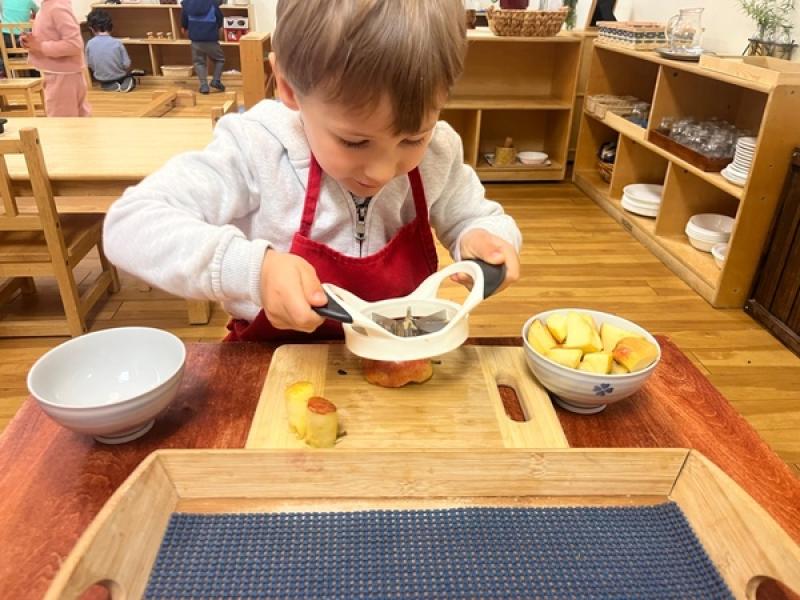Play to Develop
Young minds see, hear and experience life from a first-time perspective, making practical life an exploration playground for children. Children tend to enjoy activities rooted in real-life environments such as taking walks in nature, going to the grocery store to help pick out foods to eat, cleaning and playing in a real kitchen—with real food, plates and silverware. These practical life experiences and environments provide children the opportunity to learn social and emotional skills through guided tasks, making this style of play more beneficial for them than imaginary play.
Practical Over Pretend
Montessori brings reality into the classroom, grounding all activities with real-world materials sized down for young children. Maria Montessori observed children develop their intelligence, creativity, and imagination through hands-on experience. Introducing this practical-life approach to play prepares them for real-world scenarios that they will face as they grow. Practical play in the classroom can take on many forms, Montessori education frames play as ‘work’, a mark both of its importance and its links to the adult world. In a Montessori environment, play is goal orientated.
Staying Grounded in Reality
Understanding that young developing minds need guidance, introducing children to practical life tasks at an early age allows them to develop the necessary skills to be independent, self-reliant, confident in their abilities, and feel included in daily routines. To Educate the Human Potential, Maria Montessori said "By offering the child the story of the universe, we give them something a thousand times more wonderful and mysterious to grasp with their imagination, in a cosmic drama no fable can rival." The natural settings around us are so amazing to young children. They experience all these sights, sounds, and smells for the first time. Using an approach of incorporating practical life skills into daily play helps children grow and provides opportunities for them to learn how to interact with nature, peers, and situations with confidence.
Keeping it Real
When participating in practical life play with children, keep it real! Use the time to encourage and model behaviors, emotions, and interactions that will benefit the child’s development. With guidance from parents, educators, and community members, children can learn to differentiate between practical life learning play and imaginary play.


